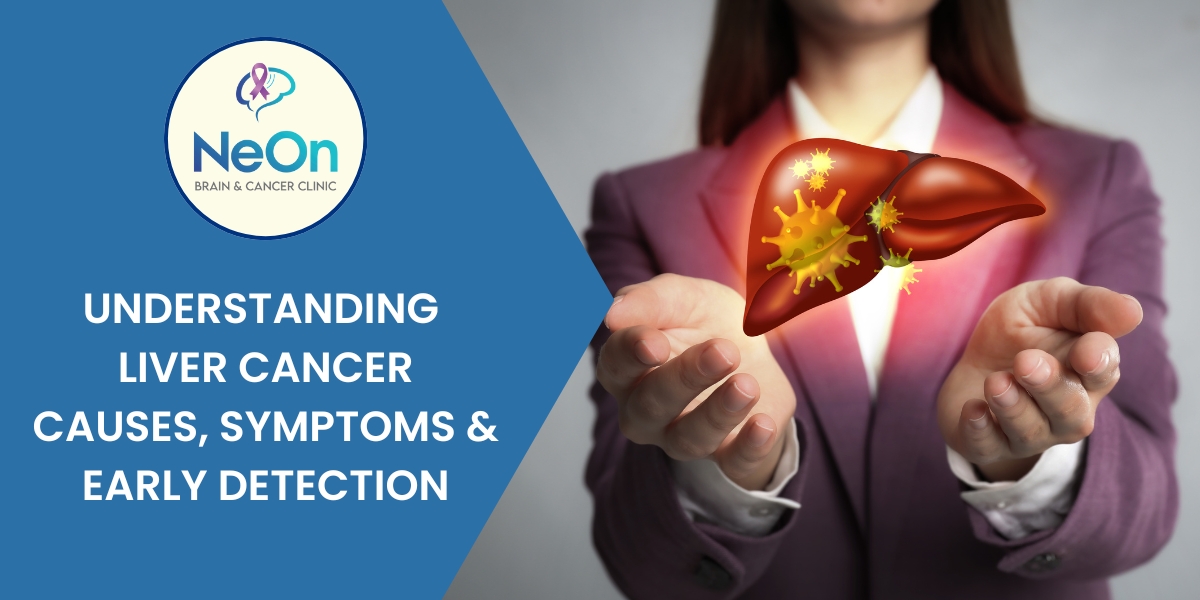Liver cancer is one of the most rapidly rising forms of cancer worldwide, and sadly, it’s often detected only in its advanced stages. Because early symptoms are subtle or completely absent, many individuals don’t know they have liver cancer until it has already progressed. Yet, with proper education and awareness, early detection and preventive measures can save lives.
In this detailed guide, we’ll help you understand what liver cancer is, what causes it, what warning signs to look out for, and why early detection plays a life-saving role in fighting this silent disease.
What Is Liver Cancer?
The liver is a vital organ that filters toxins from the blood, aids in digestion, regulates hormones, and stores energy. Liver cancer occurs when healthy liver cells mutate and begin to grow uncontrollably. These abnormal cells can form tumors, which interfere with the liver’s normal function.
There are two main types:
- Primary Liver Cancer – Starts in the liver. The most common type is Hepatocellular Carcinoma (HCC).
- Secondary (Metastatic) Liver Cancer – Starts in another part of the body and spreads to the liver (e.g., from the colon, lungs, or breast).
Major Causes and Risk Factors
Liver cancer usually develops after long-term damage to the liver. The most common underlying conditions include:
1. Chronic Hepatitis B and C
These viral infections cause long-standing inflammation and scarring of liver tissue, creating an environment for cancer cells to develop.
2. Cirrhosis
Cirrhosis occurs when healthy liver tissue is replaced with scar tissue due to injury, alcohol abuse, or fatty liver disease. It significantly increases cancer risk.
3. Non-Alcoholic Fatty Liver Disease (NAFLD)
Due to poor diet, obesity, and sedentary lifestyles, NAFLD is now a leading liver disease. It can progress to non-alcoholic steatohepatitis (NASH) and even liver cancer.
4. Alcohol Overconsumption
Long-term alcohol abuse is a major cause of liver damage and cirrhosis, both of which heighten cancer risk.
5. Aflatoxin Exposure
Aflatoxins are toxic substances produced by fungi found in improperly stored grains and nuts. Prolonged exposure can damage liver DNA and lead to cancer.
6. Genetic and Metabolic Conditions
Diseases like hemochromatosis (iron overload), Wilson’s disease, and alpha-1 antitrypsin deficiency can also predispose a person to liver cancer.
Signs and Symptoms to Watch For
Liver cancer often remains silent in the early stages. However, as the tumor grows, you may start to notice:
- Unexplained weight loss
- Loss of appetite or early fullness after meals
- Persistent fatigue or weakness
- Upper right abdominal pain or discomfort
- Jaundice (yellowing of skin and eyes)
- Dark urine and pale stools
- Swelling in the abdomen (ascites)
- Nausea and vomiting
Some people may also experience fever, itchy skin, or enlarged liver/spleen upon examination. These signs should never be ignored, especially in those with known liver conditions.
The Importance of Early Detection
Early-stage liver cancer often offers curative treatment options, such as surgical removal of tumors or liver transplantation. Late-stage liver cancer, unfortunately, is more challenging to manage and is often treated with targeted therapies or palliative care.
Who Should Get Screened?
You should undergo regular screening if you:
- Have chronic Hepatitis B or C
- Have liver cirrhosis of any cause
- Have a family history of liver cancer
- Have NAFLD or alcohol-related liver disease
- Are over age 50 and in a high-risk group
Screening & Diagnostic Tools
- Ultrasound Scan: A non-invasive test to look for tumors or irregularities.
- Alpha-Fetoprotein (AFP) Blood Test: A tumor marker that may be elevated in liver cancer.
- CT or MRI Scan: Provides a clearer image of the liver’s size, structure, and any tumor growth.
- Liver Biopsy: In some cases, a sample of liver tissue is taken for lab analysis to confirm cancer.
Treatment Options for Liver Cancer
Treatment depends on the stage, overall health, and whether the cancer has spread. Common approaches include:
- Surgical Resection: Removal of the tumor from the liver.
- Liver Transplant: Especially in patients with extensive damage but limited tumor size.
- Radiofrequency Ablation (RFA): Using heat to destroy cancer cells.
- Targeted Therapy and Immunotherapy: Helps block cancer growth on a cellular level.
- Chemotherapy or Radiation Therapy: For advanced cases or symptom control.
In some advanced cases, liver cancer or liver failure can affect the brain leading to hepatic encephalopathy, a condition marked by confusion, personality changes, or even coma. Oncologist like Dr. Asma Pathan, though primarily in treating cancer related to women, like breast cancer, often assist in managing these liver-related oncanological complications.
- Liver cancer is often silent in early stages but deadly if untreated.
- Major risk factors include hepatitis B/C, cirrhosis, alcohol use, and fatty liver disease.
- Symptoms like weight loss, jaundice, and abdominal swelling should never be ignored.
- Regular screening and liver check-ups are crucial for at-risk individuals.
- Oncanologist may play a supportive role in managing brain complications of liver failure.
Liver Cancer Awareness and Early Detection
“Liver cancer may progress quietly, but it leaves behind a loud impact. Regular screening and early detection can completely change the outcome for patients. It’s not just about managing the disease, but giving people the best chance at long-term health and survival.”



